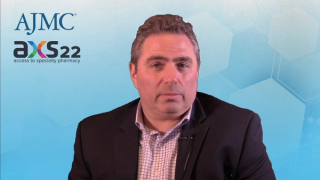
Health Care Delivery
Latest News

Latest Videos

CME Content
More News

Flat funding for HHS leaves critical health initiatives stagnant; Supreme Court weighs tightening regulations on abortion pill; manufacturing delay sparks access concerns for insulin medication.

A better understanding of biomarkers in ocular graft-vs-host disease (oGVHD) can help drive a more comprehensive understanding of the disease and improve patient outcomes, say researchers.

For Lp(a) Awareness Day, Mary McGowan, MD, FNLA, chief medical officer of the Family Heart Foundation, highlights how most people with elevated Lp(a) are completely unaware that they have this increased risk and calls for increased testing.

The Center on Health Equity and Access covered disparities in hypertension, diabetic eye health, and hidradenitis suppurativa, along with the proposed legislation banning diversity, equity, and inclusion efforts in Alabama schools and the consequences in sickle cell care from the CDC guideline for opioid prescriptions.
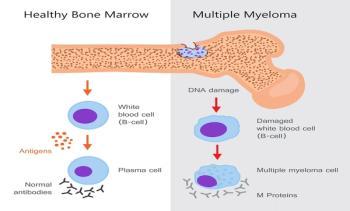
In this analysis, 3 bisphosphonates (alendronate, pamidronate, and zoledronic acid) and 1 RANK ligand inhibitor (denosumab) were evaluated for their effectiveness at preventing osteoclasts from facilitating jaw degradation and reducing vertebral fracture risk among patients being treated for multiple myeloma.

A retrospective, qualitative cohort study concludes that patients with sickle cell disease (SCD) may have been negatively impacted by the 2016 CDC guidance.

A placebo-controlled, double-blind, randomized study suggested that the consumption of yeast mannan may benefit sleep quality and gut health.

Physician-scientists play a vital role in bridging research and clinical practice, and ensuring diversity among them has emerged as a critical factor for fostering biomedical innovation and achieving equitable health care.

There is no cure for chronic lymphocytic leukemia (CLL), but new therapeutic options could extend survival, even in cases where the latest treatments have faltered.

Results from this cohort study found that levels of glial fibrillary acid protein, cerebral spinal fluid, and neurofilament heavy chain are distinguishable biomarkers that are associated with disease outcomes in multiple sclerosis (MS).

Based on the findings, investigators acknowledged the critical need to consider racial differences when assessing patients with hidradenitis suppurativa. Health care providers should be vigilant in addressing cardiovascular risk factors in this population, recognizing and addressing racial disparities that may impact disease management.

UnitedHealth Group aims to restore services amid investigations; providers advised to administer measles vaccine to infants before international travel; study finds significant increase in medication abortions after Supreme Court decision.

Posters presented at the American Academy of Dermatology Annual Meeting demonstrated both short- and long-term efficacy and safety profiles of brodalumab in patients with moderate to severe psoriasis.
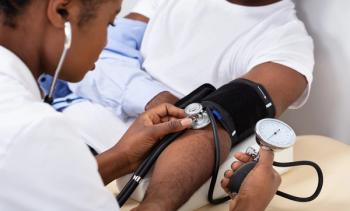
Two strategies were tried, but neither outperformed usual care.

AstraZeneca joins efforts to address high drug prices by capping out-of-pocket costs for its inhalers; Opill, the first OTC birth control pill, is now accessible through online sales; expansion prompts questions on the effectiveness and regulation of remote monitoring technology.

It is possible, if you lay the groundwork, to provide patients with acute leukemias with aggressive and effective therapies, while still allowing them to maintain quality of life, explained Jennifer Vaughn, MD, of The Ohio State University Comprehensive Cancer Center – James Cancer Hospital.

A multicentric, single-arm diagnostic study created a decentralized federated learning model for the classification of invasive melanomas and nevi, showcasing comparable results to centralized data models.

This week, the Center on Health Equity and Access highlighted expert opinions on a mental health paradigm shift in the workplace, the impact health care algorithms can have on patient outcomes, and social factors linked with hidradenitis suppurativa severity, in addition to addressing the health needs of justice-involved populations.

A recent study found significant variation in the use of recommended laboratory tests ahead of immunomodulatory treatment in patients with chronic inflammatory skin diseases, with less than 60% of patients in the US receiving recommended pretreatment testing.

Illuminating the critical intersection of substance use and mental health, these findings underscore the urgent need for comprehensive strategies to address alcohol use disorder within suicide prevention efforts.
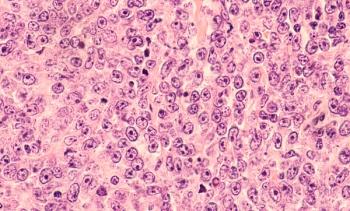
Patients had a lower risk of their diffuse large B-cell lymphoma (DLBCL) progressing if they had consolidative radiotherapy, a new report shows.

In this interview, Pat Van Burkleo, executive director of Feeding Louisiana, explains why food access initiatives are a top priority.
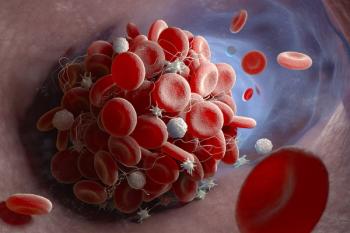
A descriptive, qualitative study investigated the experiences and perspectives of patients with venous thromboembolism on shared decision-making and treatment with anticoagulants.

A retrospective, cross-sectional study analyzed national trends of immunohistochemistry (IHC) use in the diagnosis of melanoma.

Patients with stage IV colorectal cancer (CRC) had lower overall and disease-free survival if they had a pelvic exenteration (PE) or cytoreductive surgery and hyperthermic intraperitoneal chemotherapy (CRS/HIPEC).




